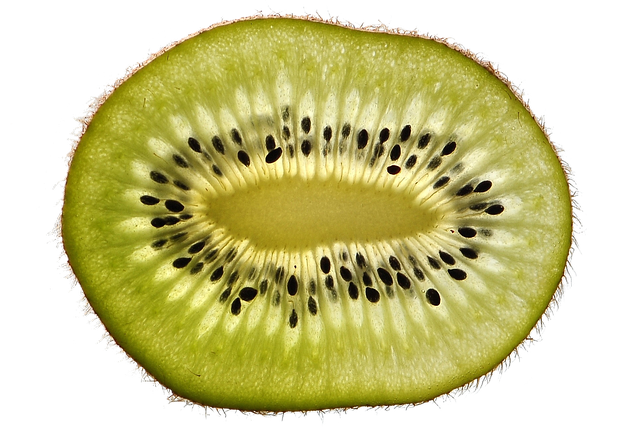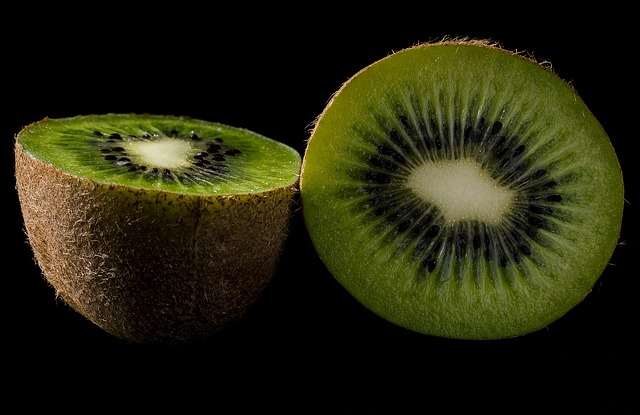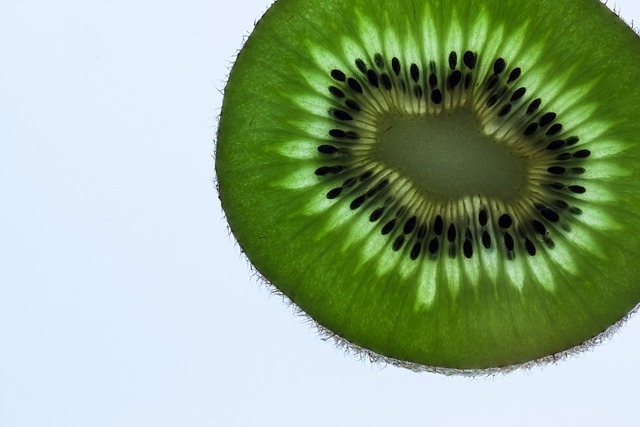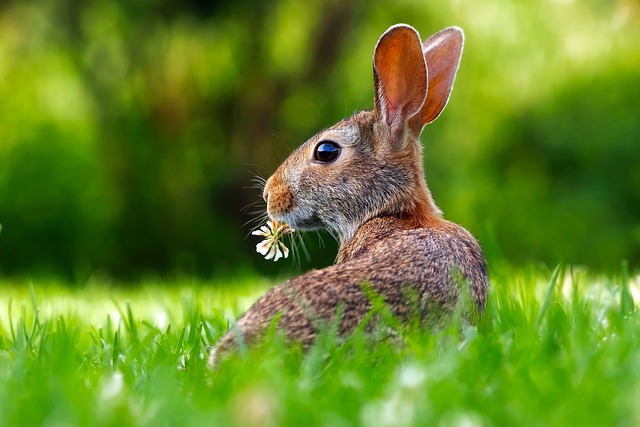Introduction to Bunny Diet

Bunnies are adorable creatures that make great pets. To ensure their well-being, it's essential to provide them with a balanced and appropriate diet. A healthy bunny diet primarily consists of hay, fresh vegetables, and a limited amount of pellets. However, it's common for bunny parents to wonder if they can introduce different fruits, such as kiwi, into their bunny's diet. In this guide, we will explore the topic of whether bunnies can eat kiwi and the factors to consider when it comes to their nutrition needs.
Before discussing kiwi specifically, it's important to understand the basic principles of a bunny's diet. Bunnies are herbivores, which means their digestive system is designed to process plant-based foods. The majority of their diet should consist of high-quality Timothy, grass, or oat hay, which provides essential fiber to keep their digestive system functioning properly. Hay also helps wear down their continuously growing teeth, preventing dental issues that can arise in bunnies.
In addition to hay, fresh vegetables are crucial for a bunny's diet. They should be offered a variety of leafy greens such as romaine lettuce, kale, and spinach. These vegetables provide important vitamins and minerals to support their overall health. It's important to introduce new vegetables gradually to avoid any digestive upsets.
Now, let's dive into the specific topic of whether bunnies can enjoy kiwi as part of their diet.
Understanding Kiwi Nutrition

Kiwi is a delicious and nutritious fruit that many of us enjoy, but when it comes to our furry friends like bunnies, it's important to understand the nutritional aspects before introducing it into their diet. Here's a closer look at the nutritional composition of kiwi:
| Nutrient | Quantity per 100g |
|---|---|
| Energy | 61 kcal |
| Carbohydrates | 14.7 g |
| Protein | 1.1 g |
| Fat | 0.5 g |
| Fiber | 3 g |
| Vitamin C | 92.7 mg |
| Vitamin K | 40.3 mcg |
| Potassium | 312 mg |
Carbohydrates: Kiwi is relatively high in carbohydrates, which can provide a good energy source for bunnies. However, it is important to monitor their overall carbohydrate intake, as excessive intake can lead to digestive issues.
Protein: While kiwi contains a small amount of protein, it is not a significant source for fulfilling a bunny's protein needs. Bunnies require a diet primarily composed of hay and leafy greens to meet their protein requirements.
Fiber: Kiwi is relatively high in fiber, which is essential for the digestive health of bunnies. It helps maintain proper gut motility and can assist in preventing issues like gastrointestinal stasis.
Vitamin C: One of the standout nutritional components of kiwi is its high vitamin C content. Vitamin C plays a crucial role in promoting a healthy immune system and preventing diseases like scurvy in bunnies.
Vitamin K: Kiwi also contains vitamin K, which is essential for blood clotting and overall bone health in bunnies.
Potassium: Potassium is an important mineral that helps maintain proper heart, muscle, and nerve function. Kiwi provides a moderate amount of potassium.
Overall, kiwi can provide beneficial nutrients to bunnies, but moderation is key. It should be offered as an occasional treat and in small quantities to avoid any potential digestive upset or imbalances in their diet. It is always recommended to consult with a veterinarian before introducing new foods into your bunny's diet.
Potential Benefits of Kiwi for Bunnies

Kiwi fruit is known for its rich nutritional content and is considered safe for bunnies when given in moderation. Here are some potential benefits of feeding kiwi to your bunny:
| Benefit | Description |
|---|---|
| Vitamin C | Kiwi is a great source of vitamin C, which is essential for a bunny's overall health. Vitamin C helps boost the immune system and supports proper growth and development. |
| Vitamin K and E | Kiwi contains vitamin K and E, which contribute to a bunny's healthy blood clotting, tissue repair, and overall antioxidant protection. |
| Fiber | Kiwi is high in dietary fiber, which aids in maintaining a healthy digestive system for bunnies. It helps prevent gastrointestinal issues such as constipation. |
| Potassium | With its potassium content, kiwi can contribute to maintaining proper muscle and nerve function in bunnies. |
While these potential benefits make kiwi an attractive addition to your bunny's diet, it's essential to introduce it gradually and in appropriate quantities to prevent digestive upset. Monitoring your bunny's individual response and consulting with a veterinarian are crucial for their well-being.
Potential Risks and Considerations

When it comes to keeping bunnies healthy, their diet plays a crucial role. Providing them with a balanced and nutritious diet is essential for their overall well-being. Apart from their main diet consisting of hay, fresh water, and high-quality pellets, you might wonder if bunnies can enjoy other foods like kiwi.
Kiwi is a delicious and nutritious fruit for humans, but can bunnies safely consume it as well? Kiwis are rich in vitamins such as vitamin C, vitamin K, and vitamin E. They also contain dietary fiber, which is beneficial for digestive health. However, it is important to understand the potential risks and considerations before introducing kiwi into a bunny's diet.
Kiwi can offer certain health benefits to bunnies, thanks to its nutritional content. Vitamin C is essential for a bunny's immune system and overall health. It helps in the production of collagen, promotes healing, and acts as an antioxidant. Additionally, dietary fiber aids in maintaining healthy digestion and preventing gastrointestinal issues.
While kiwi can provide some benefits, it's important to consider potential risks as well. Kiwi contains natural sugars, which can be problematic if bunnies consume it in excess. Their digestive systems are not adapted to handle large amounts of sugar, and it can lead to digestive upset, diarrhea, or other issues. Moreover, the fuzzy skin of the kiwi can be difficult for bunnies to process and may cause discomfort if ingested.
Additionally, some bunnies may have specific dietary sensitivities or allergies, making them more prone to adverse reactions when consuming certain foods. It is crucial to observe your bunny closely after introducing kiwi into their diet and consult a veterinarian if you notice any negative symptoms or changes in behavior.
If you decide to introduce kiwi to your bunny's diet, it is essential to do so gradually and in moderation. Start by offering a small piece of kiwi to observe your bunny's reaction. Watch for any signs of digestive upset such as loose stools or stomach discomfort. If your bunny tolerates it well, you can gradually increase the amount over time. Remember, moderation is key.
While kiwi can be enjoyed by some bunnies, it's important to remember that treats should only make up a small portion of their overall diet. There are many other safe and healthy treats that you can provide to your bunny, such as small quantities of fresh fruits like apples and berries, or leafy greens like cilantro and parsley. Always do your research and consult with a veterinarian to ensure the treats you offer are safe for your bunny.
Remember, every bunny is unique, and their dietary needs may vary. It's always best to consult with a veterinarian who specializes in rabbit care for personalized advice regarding your bunny's diet.
How to Introduce Kiwi to Your Bunny's Diet

Bunnies, also known as rabbits, have specific dietary needs to ensure their health and well-being. A balanced diet for a bunny consists of a variety of fresh vegetables, hay, and a small amount of pellets. However, it's important to be cautious about introducing new foods to a bunny's diet, including fruits like kiwi.
Kiwi is a tropical fruit that is rich in vitamins and minerals. It contains high levels of vitamin C, vitamin K, and fiber. Additionally, it has antioxidants and is low in calories. However, it's important to note that kiwi does contain natural sugars.
In small amounts, kiwi can be a nutritious and tasty treat for bunnies. The high vitamin C content in kiwi can support the bunny's immune system, while the fiber helps promote a healthy digestive system. It can also provide some variety in their diet, keeping them interested in their food.
While kiwi can be beneficial, it's important to feed it to bunnies in moderation and with caution. The natural sugars in kiwi can be harmful if consumed in large quantities, leading to digestive issues like diarrhea or upset stomach. Additionally, the fuzzy skin of the fruit can be difficult for bunnies to digest and may cause blockages in their digestive tract. Therefore, it is necessary to remove the skin before feeding kiwi to your bunny.
If you decide to offer kiwi to your bunny, it's essential to introduce it gradually and in small portions. Start by giving a tiny piece as a treat and observe your bunny's reaction. If there are no adverse effects, you can gradually increase the amount over time. Remember to remove the skin and cut the kiwi into small, bite-sized pieces to make it easier for your bunny to eat.
In addition to kiwi, there are plenty of other safe and healthy treats you can offer to your bunny. Some examples include fresh vegetables like carrots, celery, and bell peppers. Avoid giving them sugary or starchy fruits and vegetables, as they can lead to weight gain and digestive issues. Always consult with a veterinarian before introducing new foods to your bunny's diet to ensure their safety and well-being.
Other Safe and Healthy Treats for Bunnies

In order to ensure the health and well-being of our furry friends, it's crucial to understand their dietary needs. A balanced bunny diet typically consists of hay, fresh vegetables, a small portion of pellets, and occasional treats. However, it's important to consider the suitability of certain fruits like kiwi for bunnies.
Kiwi fruits are packed with essential nutrients that can be beneficial for humans, but bunnies have different nutritional requirements. Kiwis contain a high amount of vitamin C, fiber, and minerals such as potassium and folate. While these nutrients are important for overall health, bunnies have specific dietary needs that may not align perfectly with kiwi's nutritional profile.
While kiwi is not a necessary part of a bunny's diet, it can be offered as an occasional treat. Kiwis can provide a small amount of vitamin C, which is important for the bunny's immune system. Additionally, the fiber content in kiwi can help with digestion in moderation.
When offering kiwi to your bunny, it's crucial to do so in moderation. Kiwi is high in sugars, and excessive consumption can lead to digestive issues, such as diarrhea or an upset stomach. Also, the acidic nature of kiwi may cause irritation in some bunnies, especially those with sensitive stomachs. It's essential to monitor your bunny's reaction and consult a veterinarian if any adverse symptoms occur.
If you decide to offer kiwi as a treat to your bunny, it's important to introduce it gradually. Start by offering a small piece of kiwi and observe how your bunny responds. If there are no adverse reactions, you can continue offering small amounts occasionally. Remember to remove any uneaten kiwi to prevent spoilage.
While kiwi can be given as a treat, there are other safe and healthy options that you can incorporate into your bunny's diet. Some suitable choices include small amounts of fresh fruits like apples, berries, or melons. Leafy greens, such as kale, parsley, and cilantro, can also be offered in moderation. Always remember that treats should not exceed 10% of your bunny's overall diet.
| Safe Fruits for Bunnies | Safe Leafy Greens for Bunnies |
|---|---|
| Apples (without seeds) | Kale |
| Berries (strawberries, blueberries) | Parsley |
| Melons (watermelon, cantaloupe) | Cilantro |

